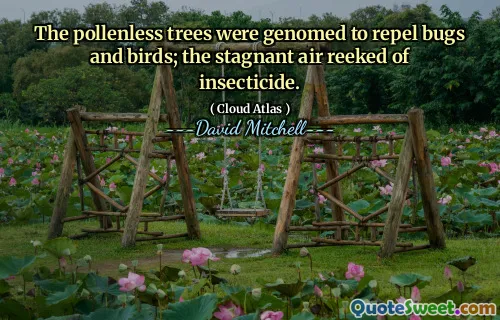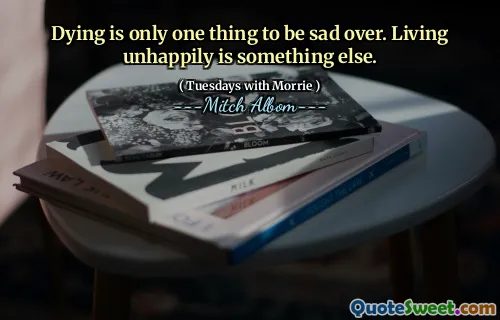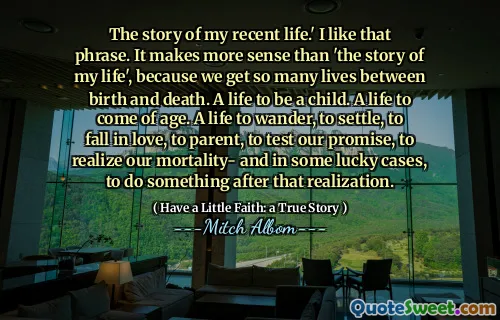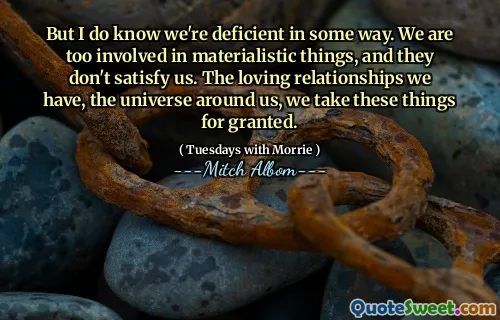So I had something to do, something I'd done, someplace to go, and something to look forward to. That's a reasonable way to live. I enjoyed myself living. I had a good time. How much else can you ask for?""A lot more," Laura said softly, "if you're greedy. I was greedy once.""So was I, but that was a long time ago. You're greediest when you're born, and after that it's downhill all the way. Live to be two hundred and you wouldn't demand anything.
The passage explores the essence of life's purpose and contentment through a conversation between two characters. One reflects on finding joy in simple experiences, such as having a sense of direction and anticipation. This perspective suggests that a fulfilling life can be achieved with modest aspirations and appreciating everyday moments. The narrator finds it satisfactory to simply enjoy living and cherishes the happiness that comes from it.
Conversely, Laura introduces the notion of greed, hinting that there can be a desire for more than just the basic pleasures of life. She contrasts the speaker's contentment with her own past feelings of greed, suggesting that as one grows older, the need for constant fulfillment may diminish. The underlying message is that while youthful aspirations are often boundless, maturity may lead to a more subdued, yet ultimately satisfying, approach to existence.





